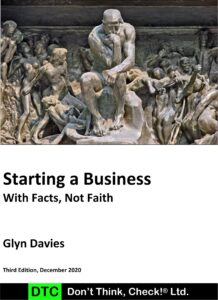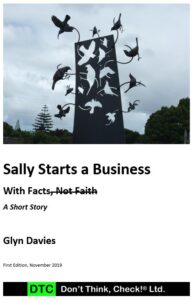
2 minute read.
My first favourite book of 2021 is ‘Think Again’ by Adam Grant, with my favourite podcast still being ‘Making Sense’ by Sam Harris.
The premise of Grant’s book is that we should all be prepared to re-evaluate what we believe to be true, to grow and adapt our thinking based on evidence and then again when new evidence becomes available. “After all, the purpose of learning isn’t to affirm our beliefs; it’s to evolve our beliefs.”
An example Grant gives is of a discussion with a former student who was concerned about his relationship with his girlfriend; she did not match the ideal of his perfect partner. The kicker was, however, that this man had formed his ideal when he was a teenager and had not updated his preferences since.
With Harris’s podcast, he always digs deep into the underlying issues, often during conversations with subject matter experts. At all times, Harris’s podcasts are based on the available evidence, and he provides interpretations that often don’t align with the prevailing populist views and beliefs.
For example, I became somewhat irritated when I listened to Harris’s podcast of the George Floyd atrocity in Minneapolis, USA (Can We Pull Back From The Brink?, 18 June, 2020). I was quite content it turns out, to attribute Floyd’s death principally to blatant racism. Harris, on the other hand, pointed out that racism was not the main or only factor; poor recruitment policies and poor training are more likely to be amongst the higher-ranking contributors.
I was shocked; again Harris’s analysis of a topic left me reeling, trying to establish the basis of my beliefs. And I conceded that he had a point; I had again unwittingly and unthinkingly jumped to conclusions and I resolved to do so less frequently.
And there is that word again, belief. I prefer to avoid that word as it is related to faith, and neither requires facts or evidence. Both Grant and Harris I am confident would be comfortable with people having concerns about a topic, but neither would condone the formation of beliefs based on concerns, hearsay, and assumptions; they would both encourage the seeking out of evidence.
Let’s try substituting the word belief (“an acceptance that something exists or is true, especially one without proof”, Oxford Dictionary) in a sentence with its definition:
- I believe that George Floyd’s death is a direct result of blatant racism.
- I accept that it is true without proof, that George Floyd’s death is a direct result of blatant racism.
I don’t know about you, but substituting definitions such as with the thought experiment above would not only make for cumbersome conversation, I would be embarrassed to have formed such utterances in the first place.
I highly recommend both Grant’s book and Harris’s podcast if you want to rethink your thinking.
To summarise, my approach is:
- “I have some concerns [on that topic], but I don’t have enough evidence to form an opinion,” and or
- “Don’t Think, Check!®”



